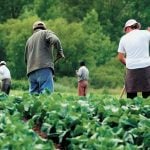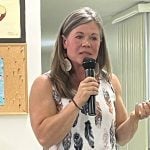Paul Beingessner liked to get involved.
Not because he wanted to be in charge or tell people what to do. He got involved because he wanted to make Western Canada, Saskatchewan and his home community of Truax better places.
According to friends and grain industry colleagues, he did just that.
The well-known columnist, farm policy activist and transportation expert, who was instrumental in establishing Saskatchewan’s short-line rail network in the early 1990s, died in a farm accident June 25 at age 55. RCMP said he was pulled into a haybine while trying to repair it.
Read Also

Alberta may eliminate marked fuel
Alberta may soon stop selling dyed gasoline and diesel.
“All farm accidents are tragic, but when you lose not only such a fine individual but also all that knowledge that goes with it, it’s even worse,” said Sinclair Harrison, who worked with Beingessner on the Farmer Rail Car Coalition.
Beingessner was born in Moose Jaw, and after earning a degree in psychology from the University of Regina in 1976 and working with at-risk youth, he spent most of his life on the family grain and livestock farm at Truax, just southeast of Regina.
In 1991, Beingessner began writing a column for local weekly newspapers across the Prairies on farming and transportation issues, with a strong social justice bent, making him a familiar name and face to tens of thousands of readers.
He played a key role in setting up Saskatchewan’s first short-line railway, Southern Rails Co-operative, serving as general manager from 1991-97, and was a delegate to Saskatchewan Wheat Pool from 1996-98.
He later worked with the provincial government on rail transportation issues, helped other groups and farmers start their own short lines and eventually did consulting work across Western Canada and the United States.
He also twice ran unsuccessfully for election as a Canadian Wheat Board director.
Rob Lobdell, president of Western Central Road and Rail, said Beingessner’s death will leave a huge void, not just personally, but for the industry.
“I don’t think we’ll find somebody with the same combination of the strength of his intellect and his innate ability to take complex issues and distill them into plain language anyone could understand,” he said.
Ian McCreary, former CWB director who worked with Beingessner on transportation issues, said he brought a sense of fairness and an intellectual rigour to discussions, and was able to communicate his ideas.
“Paul was gifted and respected, even by those who didn’t agree with him,” he said.
National Farmers Union president Stewart Wells, said farmers and ranchers have lost a valued friend who matched his words with actions designed to make rural Canada a better place.
Beingessner is survived by his wife Faye and five children, his parents and three sisters.














